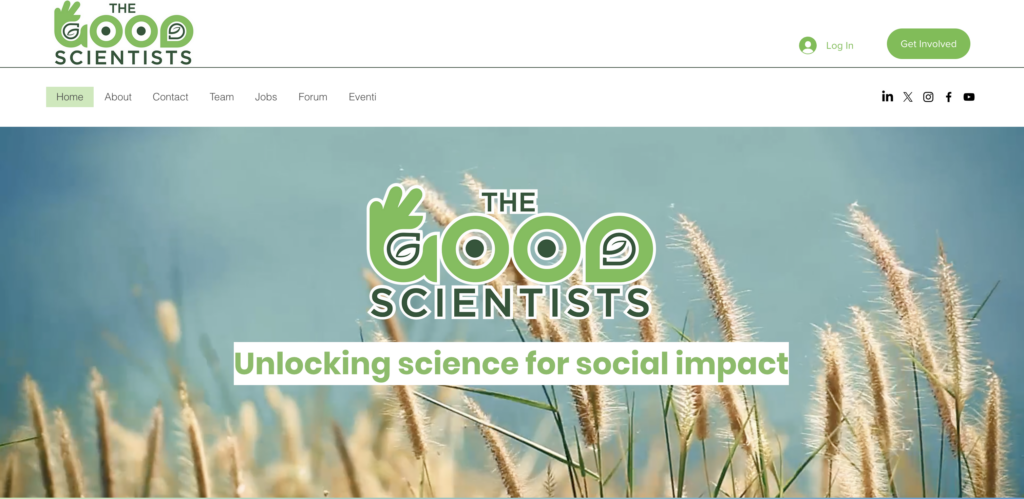Innovative AI Solutions for Social Impact
It is often challenging for non-profit or civil society organizations to access scientific knowledge and expertise that could benefit the intended mission and desired impact. Many scientists and researchers are also eager to use their expertise to make a positive contribution to the world. “The Good Scientists” was born out of these two parallel realizations.
The Good Scientists provides a matchmaking platform to connect academic researchers with social and environmental impact projects. The end goal is to create new and unconventional collaborations and make science actionable for social impact.
The Good Scientists does this by developing inclusive and decentralized online tools to match scientists with social impact projects. Their platform relies on a database of scientists from various scientific fields and career stages available for collaborating and consulting pro bono for civic stakeholders. The organization is run by volunteers based in Europe and North America.










